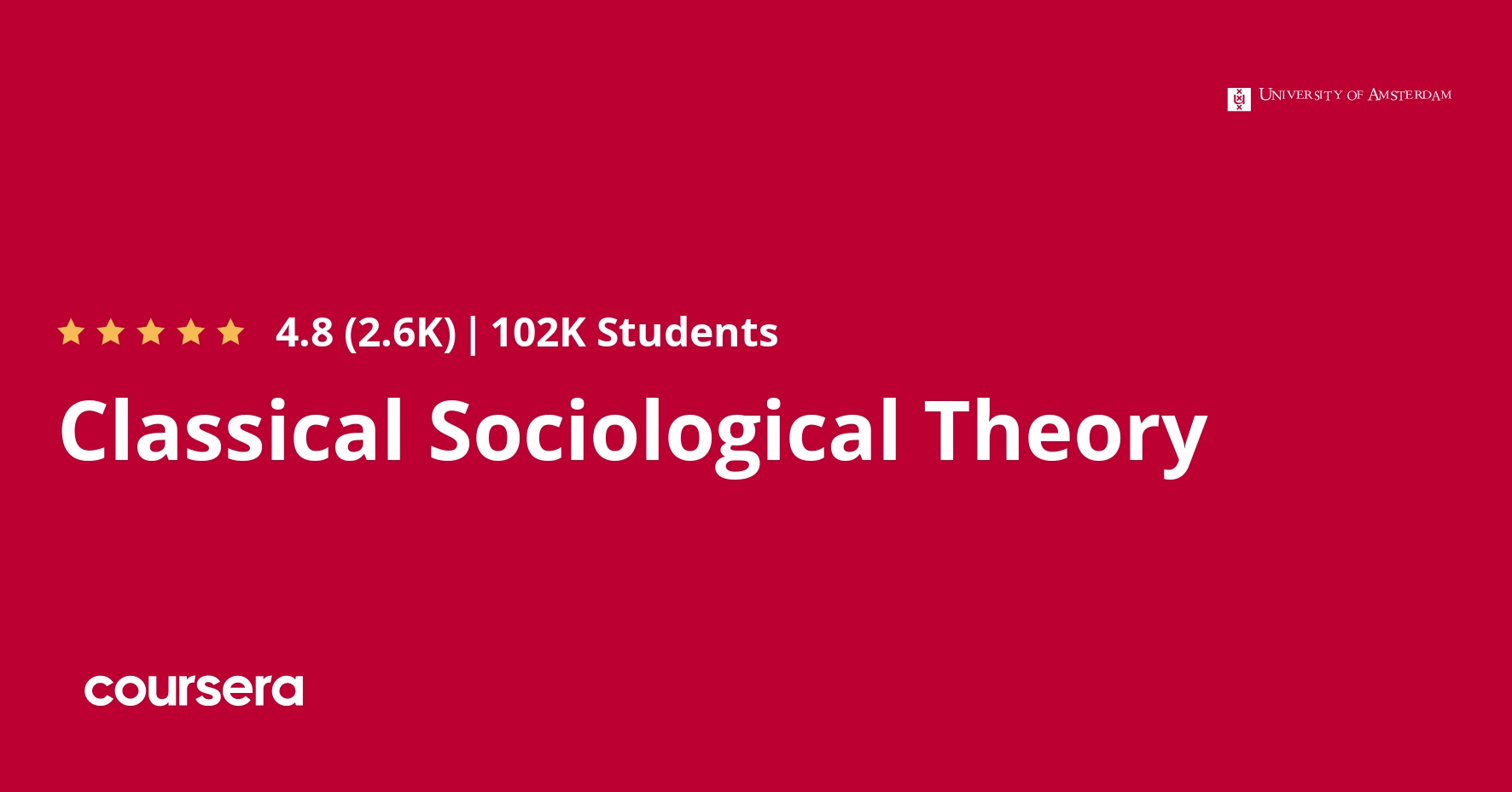Description
This Massive Open Online Course (MOOC) will offer the participants an introduction into the most important classical sociological readings between the 18th and 20th century. Highly influential social science scholars, such as Karl Marx, Max Weber and Emile Durkheim, will be discussed during 8 sessions. Combined with small tests, based on the video’s and recommended readings, the participants will be encouraged to dive deeply into the complex texts and get familiar with classical sociological concepts that are still very relevant today.
What you will learn
Session 1: Classical Sociological Theory – An Introduction
In this session the field of classical sociological theory will be introduced. It explains the historical roots of sociology. It shows you why classical sociological theories are still important in modern societies and it explains the Aims and Claims of this Course.
Session 2: Bernard Mandeville (1670-1733) and Adam Smith (1723-1790)
This session explains the work of Adam Smith. It shows you how a poem written by Bernard Mandeville inspired Adam Smith. Adam Smith’s theory shines light on the consequences of industrialization. You will learn what the consequences are of the Division of Labour.
Session 3: Auguste Comte (1798-1857)
This session will cover the author of the word “sociology”, August Comte. He often engaged in theorizing the social world in order to attempt to discover invariant laws. Terms like “positivism”, “the law of the three stages” and “Functionalism” are prominent topics in this session. Comte believed that positivism could both advance science (theory) and change the ways people live their lives (practice).
Session 4: Alexis de Tocqueville (1805-1859)
Tocqueville’s works shaped 19th-century discussions of liberalism and equality, and were rediscovered in the 20th century as sociologists debated the causes and cures of tyranny and revolutions. His famous work “Democracy in America” remains widely read and even more widely quoted. This session will cover Tocqueville’s most important ideas.





